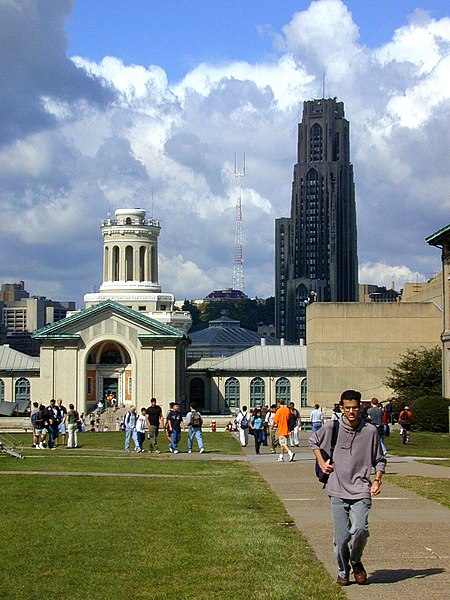When More People Are Better

Certain places are better if there are fewer people there. This is
true of national parks and museums. Administrators of places like this
are in an interesting bind: they want to attract more visitors, while
at the same time they know that the more people show up the worse the
experience is for those who do. Other examples of places like this are
airplanes, roads, the beach, and grocery stores.
Other places are not like that. Dance clubs, parties, city parks, and bars are
like this, for the most part. There is a point where there are too
many people, but more often the complaint is that the place is "dead."
As a result people all tend to go on the weekend, because that's when
everyone else is going.
This also is true of many virtual spaces. In the 90s everyone I knew
was using Friendster.com, then people started getting into
myspace.com, and now the hot thing seems to be facebook.com. As far as
I can see they are all just tweaks on the same concept, but I find
myself using facebook more now simply because there are more people in my
social circles
using it. I never get messages through my friendster account anymore.
I think scientific institutions are of this latter kind too. It
might be nice if finding a place to do science is like finding an
undiscovered beach, but the truth is that you can do better science
if you're surrounded by other great scientists. As a result, I want to
be at the best scientific institution I can.
I was reading an article in Discover (Pitock, 2007) that describes the
scientific environment in Muslim countries. Over the centuries Islam
has varied in how permissive it has been to science, but one of the
things that makes the west so great is that it's much more open to
scientific inquiry. For the most part, you don't have to worry about
whether or not your ideas conflict with religion or politics.
There are exceptions, of course. You can get into trouble if you even
suggest that women or minorities have some sort of innate mental
differences, and even sometimes physical differences.
It doesn't surprise me at all that there's a brain drain from the east
to the west. Since the west is ahead right now, it's hard for the east
to catch up. It's a rich-get-richer scenario. Once everyone goes to
the west, you have no (career-related) reason to ever leave.
When I think about where I'm going to go on sabbatical, I sometimes
fancy going to some second- or third-world country, but ultimately I
remember that I would be much better off going to MIT or Carnegie
Mellon.
But what about the good of these poorer countries? Well, I could
consider going to these countries as an act of charity. As a scientist
trained in the west, I can help foreign institutions by publishing
papers with their universities listed in the credits, as well as help
train the graduate students there with my expertise.
One of the great things about science and technology, however, is that a discovery
anywhere tends to help people everywhere. For example, medical
discoveries only need be made once for everyone to benefit from
them (e.g. that germs cause many diseases and that cleanliness can
prevent disease). So it doesn't matter if all the breakthroughs come from one area of a twenty mile radius: in general it does not affect how the world responds.
So is it better to work at a better place to help all of humanity or
to go to a less-fortunate place to help them more immediately? I see
it as a short-term/long-term trade off. We need people discovering more
efficient ways to grow food (long term), we need distribution, soup kitchen
managers, and people ladling soup to the destitute (short term).
So ultimately I think one should maximize one's potential to affect
positive change. If you're a better mentor than researcher, then
perhaps the less-fortunate country would be the right choice. If
you're completely anti-social but good at discovery, sabbatical at
CMU (pictured).
REFERENCES
Pitock, T. (2007). Science and Islam. Discover. July, 36--45.

Comments